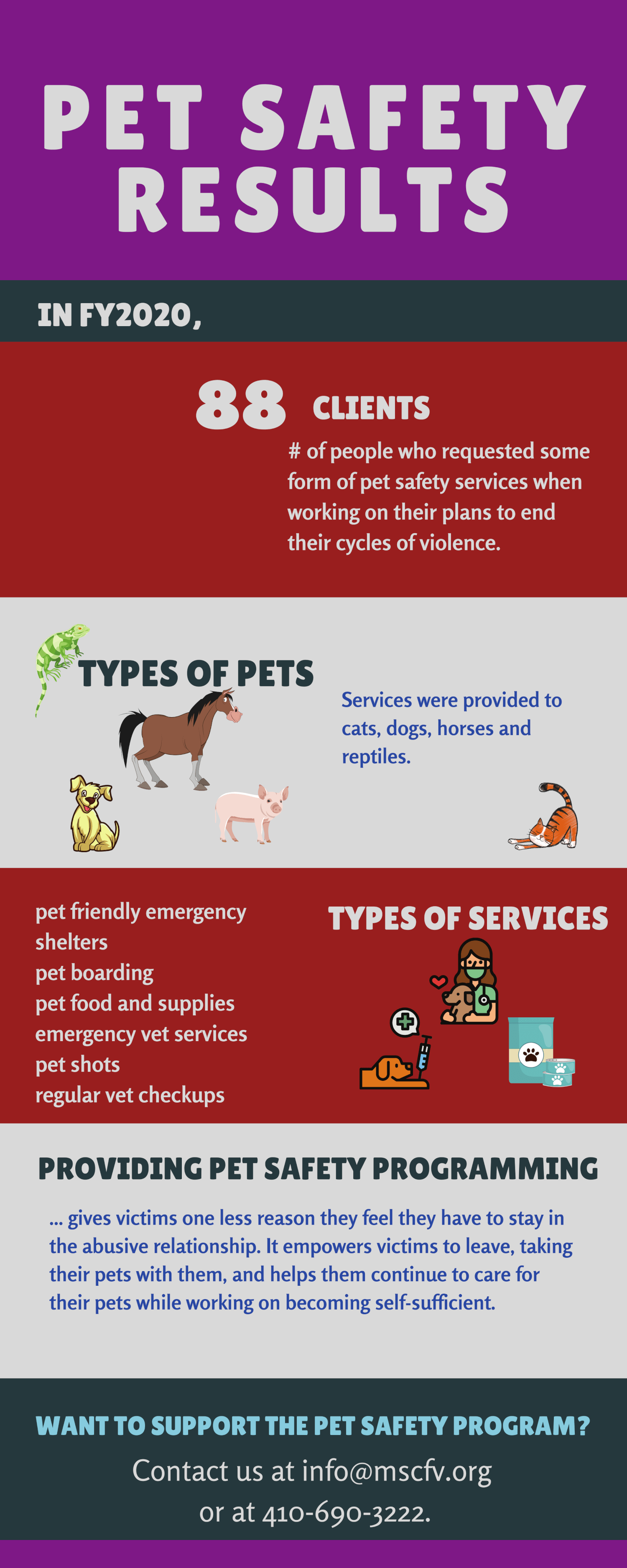Between July 2019 and June 2020, MSCFV served 440 victims of family violence and their 687 children. The total number of services provided include:
While knowing how many people are helped, how many services are provided, and other data related to the work of MSCFV, the impact of MSCFV's programming goes well beyond the numbers. To provide comprehensive, person-centered services that meet the changing and diverse needs of victims, program evaluation is a strong component to MSCFV services. Utilizing tools such as the Safety Planning Score and the Threat Appraisal Scale, MSCFV tracks the impact services have on the overall sense of safety experienced by victims. Tracking of hotline calls, services provided, service requests, and regular feedback from clients and partner organizations through program evaluations and focus groups assist MSCFV in identifying areas of program strength, gaps in service, and program successes.
In FY2020, MSCFV provided 736 nights of temporary emergency shelter for 18 survivors and their 15 children. Among clients completing stays at MSCFV’s shelter…
MSCFV has found that victims of domestic violence often experience challenges from economic abuse that can have a devastating lasting impact on their ability to recover from an act of violence, leave an abusive situation or achieve financial independence.
So I mean my credit was a mess, I barely qualified for a car loan, I didn’t have a bad job, but it wasn’t enough to get a handle on, it wasn’t enough to run the household, pay the car, electric, water, everything. So thank God for mid‐shore, I don’t know where I’d be. So they got me in that house, yeah, that was such a huge day.
~MSCFV Client Four
A total of 406 clients have completed MSCFV’s Economic Empowerment Center intake, including the Ability to Meet Basic Needs Measure. This data reveals that, when victims come to MSCFV’s Economic Empowerment Center, most say their family income is “not at all adequate” (46%) or “can meet necessities only” (35%). In addition:
After completing the Economic Empowerment Program, participants reported:
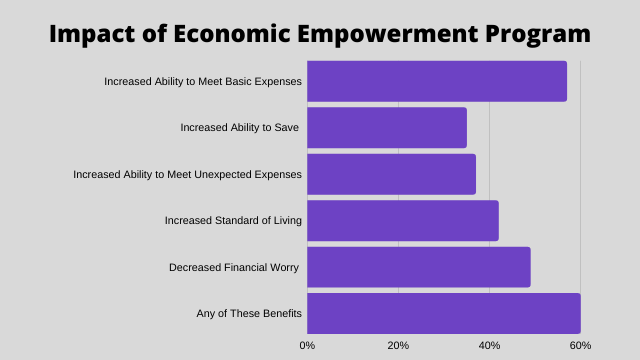
Since opening its doors, the EEC represented 180 victims in a total of 343 legal cases, including bankruptcy, child support/custody, debtor/creditor, taxes, motor vehicle administration, landlord/tenant, expungement, employment and protective order modification. So far 200 of those cases have closed. The efforts of the EEC team resulted in:
Hotline calls are an important crisis service, providing victims with support and actionable information about MSCFV resources, their legal rights, and possible next steps for ending the violence. MSCFV advocates answered 403 hotline calls from victims in crisis in fiscal year 2020. During these calls, advocates often discuss Safety Planning, Community Resources, and Legal Rights & Options.
The majority of victims achieve positive outcomes in these calls, including a better understanding of the cycle of violence, a better understanding of their rights and options, and a readiness to take the next step in ending the violence.
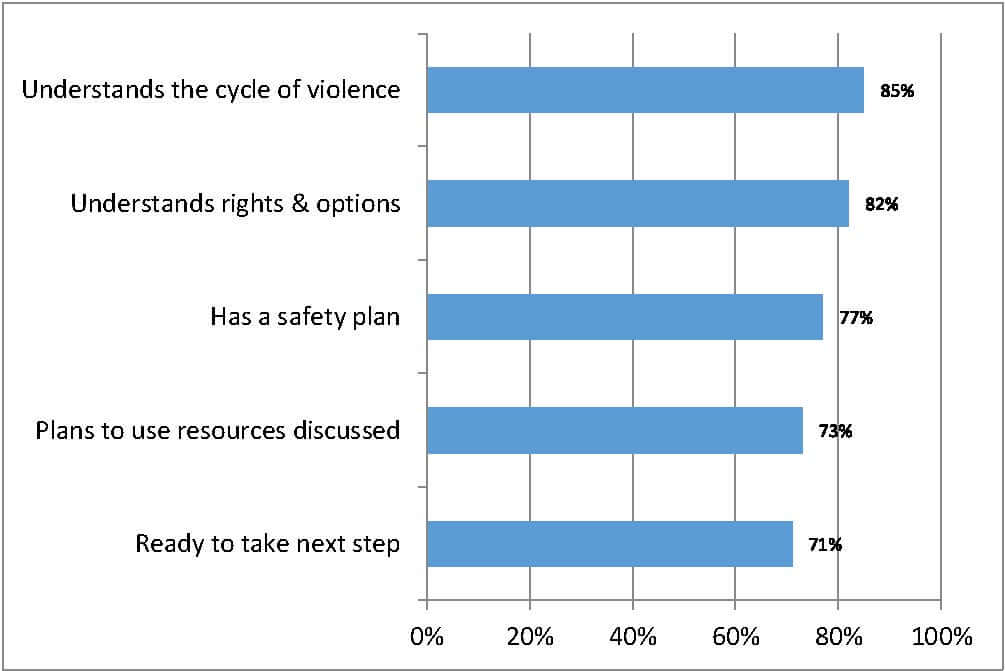
We know from our services data that most hotline callers do go on to receive other services. For example, 86% received additional counseling, 88% received follow up services, and 38% had an advocate accompany them to court.
The legal services provided by MSCFV achieve several important outcomes for family violence victims. During the 2020 fiscal year, a total of 249 legal cases were closed or resolved. The most common outcome for legal clients was obtaining protection via a final protective order. Obtaining or maintaining custody is also a common outcome.
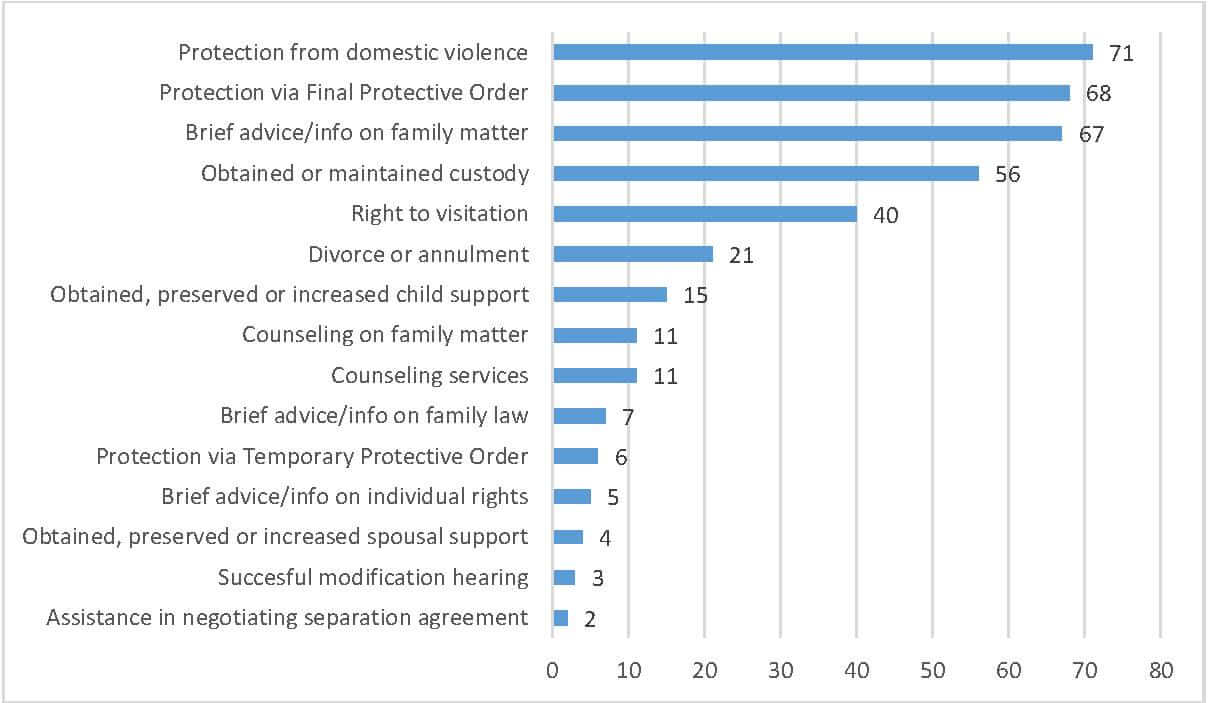
Attorney representation in protective order hearings can often be critical for victims to receive the protection they need. In fiscal year 2020, 68% of victims with MSCFV representation at their FPO hearings had their protective orders granted. This percentage is remarkably higher than the 47% of final protective orders granted statewide.
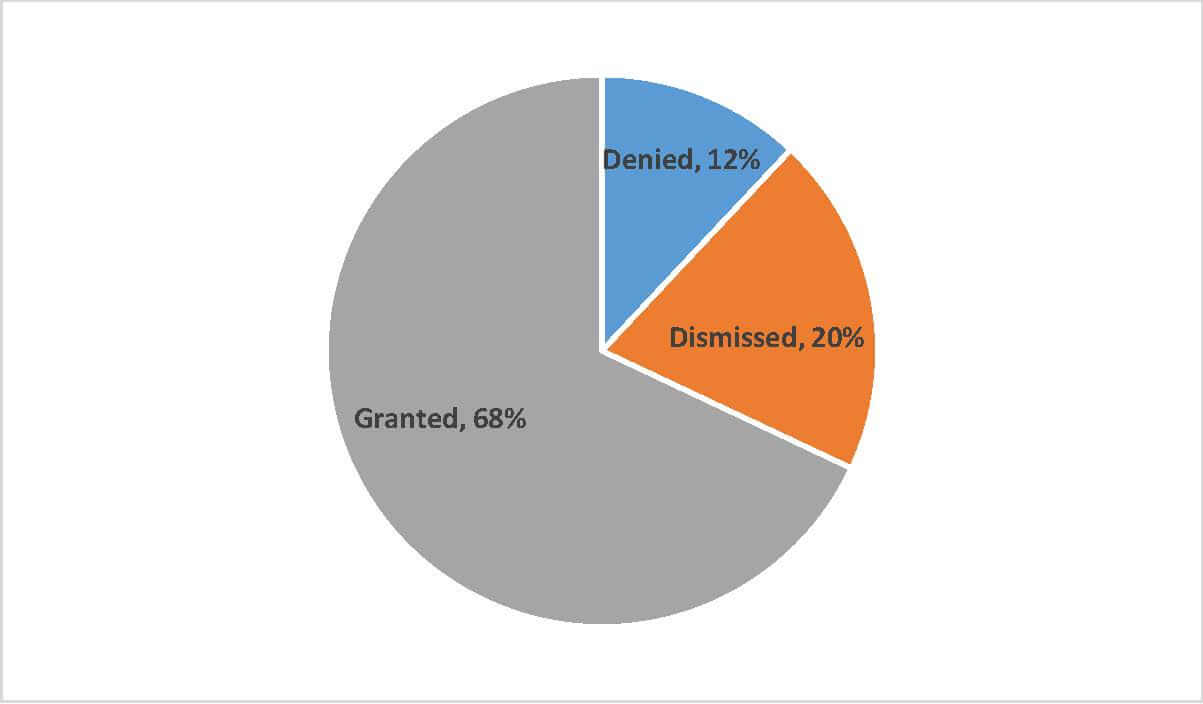
The MSCFV Pet Safety Program helps victims care for their pets throughout their journey from crisis to self-sufficiency, including providing pet friendly emergency shelters, pet boarding, pet supplies, and regular and emergency vet visits.
